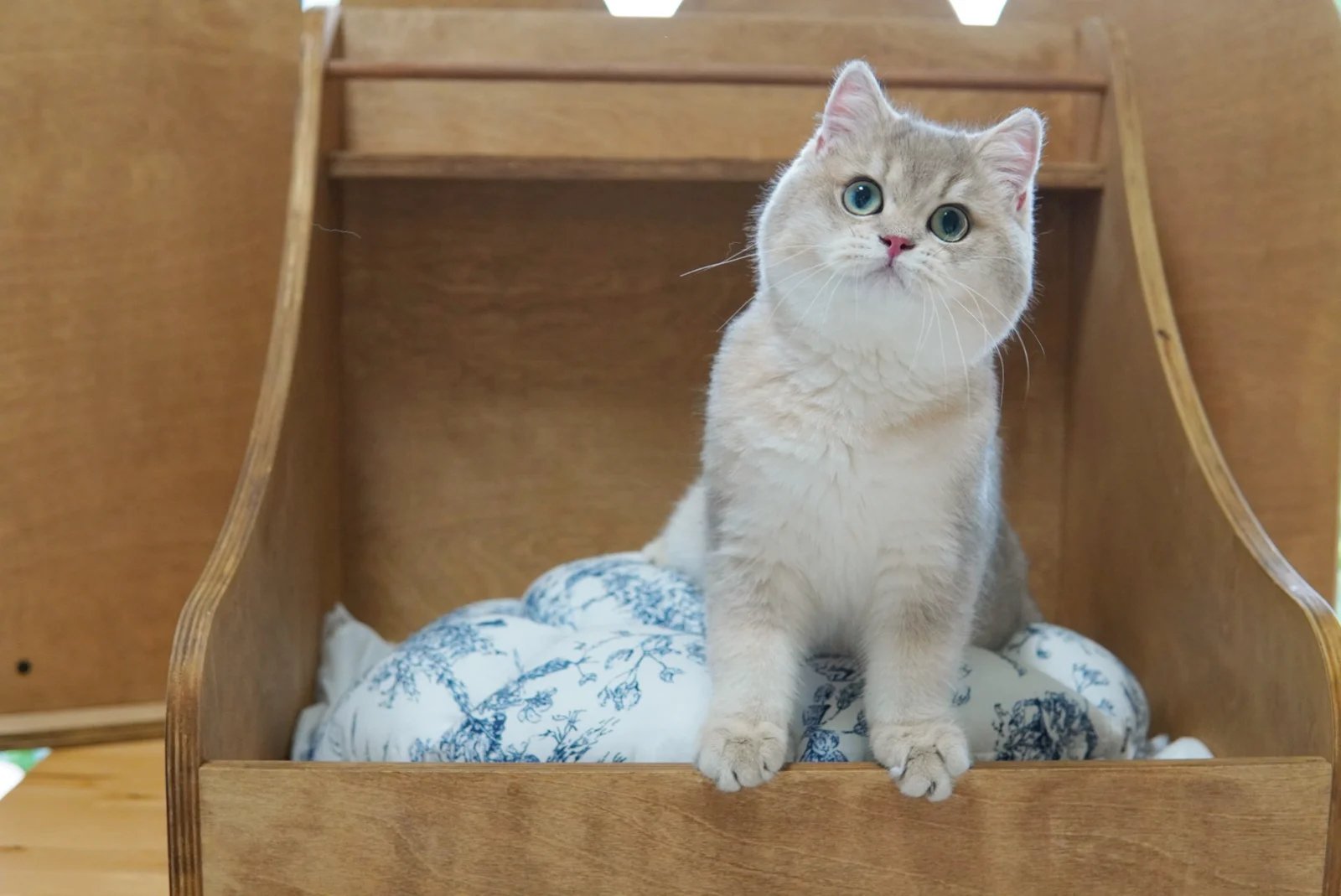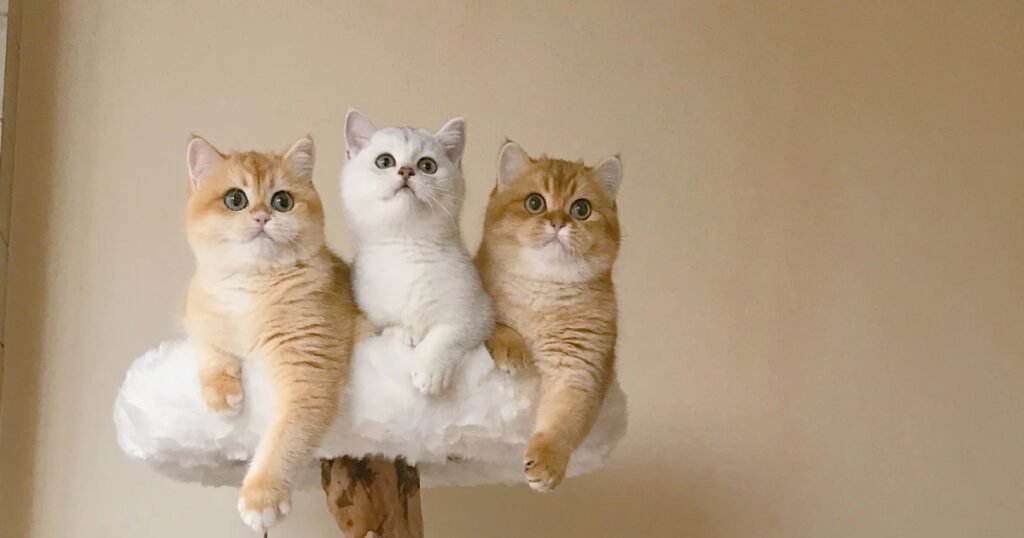Cats may be independent in spirit, but their hearts are often more tender than they let on. Many people are surprised to find out that cats, just like us, can feel anxious and lonely when the ones they love aren’t around. If you’re a cat parent or preparing to bring a new kitten into your life, it’s completely natural to worry about how your furry friend will cope when you’re away. Whether you’re helping them settle into their new home or simply adjusting to time apart, the good news is this: with a little understanding and care, there’s so much we can do to help them feel safe, secure, and loved—even when we’re not right beside them.
At Xi Meow Cattery, we know just how deep the bond between humans and their cats can go. That’s why we’re here not just to provide you with a loving kitten, but also to support you with all the little things that come after. You’re not alone in this journey.
Why do some cats feel anxious when left alone?
Cats are creatures of habit and comfort. If they’ve grown up in a nurturing, affectionate environment, they’re likely to form strong attachments to their humans. A sudden change in routine—like going back to the office after working from home—can leave them feeling a little lost.
Some cats are naturally more sensitive than others, especially affectionate breeds such as British Shorthairs or Ragdolls. If you’ve been browsing for a British Shorthair for sale or even a British Longhair for sale, you’ll be pleased to know these breeds are incredibly sweet-natured and loving—but yes, they may feel your absence a little more deeply.
Kittens that were weaned too early, rehomed too often, or lacked proper socialisation may also be more prone to separation anxiety. That’s why, at Xi Meow, we make sure each kitten is raised with gentle hands, daily interactions, and plenty of love so that they grow up feeling secure and confident.
Signs your cat might be missing you

Just like us, every cat expresses their emotions in their own unique way. If you’re worried your cat might be struggling with separation anxiety, here are some things to gently look out for:
- More meowing than usual: Some cats cry at the door as you leave or vocalise while you’re gone.
- Cheeky behaviour: Scratched furniture, knocked-over items, or unusual chewing could be signs of distress.
- Accidents outside the litter box: Not fun for anyone, but often a cry for help.
- Obsessive grooming: Overgrooming or fur loss can sometimes stem from emotional stress.
- Loss of appetite: If your kitty isn’t eating much while you’re away, it may be missing your presence.
- Shadow-like clinginess: Following you everywhere, even to the bathroom? That’s love—and a bit of anxiety too.
Don’t worry if you’re noticing one or two of these signs, it’s okay. The important thing is knowing there are gentle ways to help your little one feel more at ease.
Simple ways to comfort your cat when you’re not home
There’s no one-size-fits-all approach, but here are a few thoughtful ways you can help your cat feel safe and secure:
- Make a cosy retreat: A favourite blanket, a familiar scent (even an old T-shirt of yours), and a comfy bed can be very reassuring.
- Interactive toys: Puzzles or treat-dispensing toys can keep curious minds engaged while you’re away.
- Play soft sounds: Some cats find comfort in quiet music or even the gentle hum of the TV.
- Start small: If your cat isn’t used to being alone, begin with short outings and build up gradually.
- Stick to routines: Feeding and playtimes that follow a regular schedule can give your cat a comforting sense of rhythm.
- Try calming aids: There are safe, vet-approved pheromone diffusers that can soothe anxiety and create a peaceful environment.
We promise your cat doesn’t need to feel alone, even when you’re not home. With a bit of effort and a lot of heart, they can grow to feel calm and confident in their own space.
When your kitty might need a little extra help
Sometimes, even with your best efforts, your cat might still feel overwhelmed. If you’re concerned, speaking with a vet or feline behaviourist is a kind and proactive step. They’ll guide you with tailored advice, and in more serious cases, might suggest temporary medications to help ease anxiety.
For those bringing home affectionate breeds like the British Shorthair, it’s also important to work with responsible breeders who focus not just on looks, but on raising emotionally well-balanced kittens. At Xi Meow, we take this very seriously—because your future cat deserves the best start in life.
Start with a strong foundation from kittenhood
The early months are so important. Kittens that grow up with gentle care and steady routines tend to become confident, well-adjusted adult cats.
At Xi Meow, every kitten is already vaccinated, dewormed, and given thorough health checks before going to their forever home, so you can focus on bonding, not worrying.
We also encourage early kitten training and gentle exposure to new experiences. Even attending a cat show in Singapore can feel natural for a well-socialised kitten. We guide new pawrents on how to register their cat licence, and if you wish, we’ll help you register your kitten with a recognised international body like the World Cat Federation (WCF), which supports ethical breeding and pedigree recognition.
No matter where you are on your cat journey, we’re here to walk it with you—every pawstep of the way.
From our hearts to your home
At Xi Meow Cattery, we’re more than just a place to find your dream kitten. We’re a little family of cat lovers who genuinely care about your worries, your joys, and your questions. From helping you choose the right kitten, to guiding you through training, vaccinations, and emotional care—we’re here to support you every pawstep of the way.
With love, care, and expert advice, we’re here to make sure that your new feline family member feels safe, happy, and very much at home.

